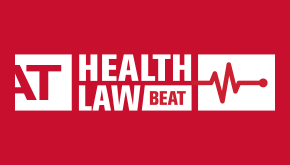Important Pharmacy Developments and Deadlines from FDA, FTC
FDA Rule Change Now Allows Mail-Order, Retail Pharmacy Distribution of Abortion Pills
Earlier this month, the U.S. Food and Drug Administration (FDA) changed its course on abortion pills, now allowing certain abortion medications—mifepristone and misoprostol—to be dispensed through retail pharmacies and further allowing mail delivery of the same. In response to a request for clarification from the U.S. Postal Service (USPS), the Department of Justice’s (DOJ) Office of Legal Counsel issued a legal opinion made public on Jan. 3 stating that the Comstock Act does not prohibit mailing abortion pills if the sender does not know that the medications will be used illegally.
USPS sought the DOJ’s opinion based on a lawsuit filed last November by conservative legal group Alliance Defending Freedom. In that suit, filed in federal court in Texas, the plaintiffs sought to ban abortion pills from the U.S. mail, citing for support, the Comstock Act of 1873. Comstock made it illegal to send “obscene, lewd or lascivious,” “immoral,” or “indecent” publications through the mail, including items related to unlawful abortion.
The DOJ opinion emphasizes that the law applies only to “unlawful” abortions. The DOJ opinion goes further, holding that abortion is legal at the federal level and as such, mifepristone and misoprostol can be mailed to individuals, even in states with abortion restrictions or bans. Further, in addition to abortion being legal at the federal level, the DOJ noted that every state allows abortion in some circumstances, such as to preserve the life of a pregnant woman.
The opinion concludes, “therefore, even when a sender or deliverer of mifepristone or misoprostol, including USPS, knows that a package contains such drugs—or indeed that they will be used to facilitate an abortion—such knowledge alone is not a sufficient basis for concluding that [the law] has been violated.”
The DOJ opinion applies to USPS and other private carriers, such as United Parcel Service (UPS) and FedEx. But UPS and Fed Ex aren’t the only private companies whose abortion services were expanded upon, as last week, the FDA announced that retail pharmacies can now distribute abortion pills. This granting of permission to distribute abortion pills applies to giants such as Walgreens and CVS.
On Jan. 3, 2023, the FDA announced the rollout of a new Risk Evaluation and Mitigation Strategy (REMS) certification process. Before the change, certified providers had to stock and distribute the pills themselves, or otherwise rely on mail-order pharmacies to distribute the medication.
The new certification process creates an obligation for retail pharmacies to register with the FDA to be eligible to distribute. The pharmacy certification requirement ensures that pharmacies are aware of and agree to follow applicable REMS requirements and ensures that mifepristone is only dispensed pursuant to prescriptions that are written by certified prescribers.
To become certified to dispense mifepristone, pharmacies must: (1) be able to receive Prescriber Agreement Forms by email and fax; (2) be able to ship mifepristone using a shipping service that provides tracking information; (3) designate an authorized representative to carry out the certification process on behalf of the pharmacy; and (4) ensure the authorized representative oversees implementation and compliance with the Mifepristone REMS Program, which includes, among other requirements, the completion of a Pharmacy Agreement Form.
The FDA change differs from the mail option in one key respect: while the mail option is permissible because the DOJ opines that abortion is legal under federal law, regardless of state, the same does not hold true for retail pharmacies. Instead, retail pharmacies may only dispense the abortion drugs in those states that have not banned abortion.
Drug Supply Chain Security Act Updates
The Drug Quality and Security Act (DQSA) was enacted by Congress on Nov. 27, 2013. Title II of DQSA, the Drug Supply Chain Security Act (DSCSA), was to be implemented in two phases. Phase I outlined steps to achieve interoperable, electronic tracing of products at the package level to identify and trace certain prescription drugs as they are distributed in the United States. DSCSA was passed with the intention of enhancing the FDA’s ability to help protect consumers from exposure to drugs that may be counterfeit, stolen, contaminated, or otherwise harmful. The agency intended for the requirements to improve detection and removal of potentially dangerous drugs from the drug supply chain to protect consumers.
Phase II expands upon Phase I’s protections and goes into effect later this year. By Nov. 7, 2023, pharmaceutical manufacturers, distributors, wholesalers and dispensers are required to incorporate the following:
- Interoperable exchange: Trading partners must have the ability to securely exchange transaction information (TI) and transaction statements (TS). In addition, TI must include a product identifier for individual packages.
- Interoperable verification: After receiving data, trading partners must be able to verify the product identifier on a package. For example, a pharmacist who receives a shipment of drugs should be able to scan a barcode to confirm its authenticity.
- Interoperable tracing: Pharmaceutical stakeholders must be able to trace a product’s journey throughout the supply chain. That means that every detail of a product’s TI and TS must be available upon request.
Failure to comply with these new regulations could result in fines, loss of licenses, and a loss of business to competitors.
FDA Opines That “Plan B” Is Birth Control and Not Abortion
On Dec. 23, 2022, the FDA announced it will change the packing for Plan B One Step to indicate that the drug is a form of birth control and does not induce abortion.
The FDA provided: “Plan B One-Step is an emergency contraceptive, a backup method of birth control. Emergency contraception is used to reduce the chance of pregnancy after unprotected sex (if other birth control failed or was not used). It is not for routine contraceptive use. Plan B One-Step is available as a nonprescription (over the counter or OTC) drug.” The drug comes in the form of one levonorgestrel pill (1.5 mg) that is taken by mouth after unprotected sex or contraceptive failure. Levonorgestrel is a synthetic hormone used in birth control pills for over 35 years.
The FDA justified its position by further distinguishing Plan B from abortion because “Plan B One-Step does not work when a woman is already pregnant. Therefore, when considering when in the reproductive cycle that Plan B One-Step might work, it will be clear to the consumer that Plan B One-Step works very early in the reproductive cycle (prior to ovulation).”
Pharmacy Benefit Managers Should Expect Continued FTC Scrutiny
Historically, pharmacy benefit managers (PBMs) and the Federal Trade Commission (FTC) have sparred over struggles for power. On June 7, 2022, the FTC threw its latest punch, announcing its decision to launch an inquiry into the business practices of the six (6) largest PBMs. The agency’s inquiry will scrutinize the impact of vertically integrated pharmacy benefit managers on the access and affordability of prescription drugs. As part of this inquiry, the FTC will send compulsory orders to CVS Caremark; Express Scripts, Inc.; OptumRx, Inc.; Humana Inc.; Prime Therapeutics LLC; and MedImpact Healthcare Systems, Inc.
Specifically, the FTC noted, “[a]lthough many people have never heard of pharmacy benefit managers, these powerful middlemen have enormous influence over the U.S. prescription drug system,” said FTC Chair Lina M. Khan. “This study will shine a light on these companies’ practices and their impact on pharmacies, payers, doctors, and patients.”
Importantly, particularly in the eyes of the FTC, PBMs receive remuneration reform insurers and employers for administering prescription drug benefit plans. However, PBMs also receive volume-based rebates from the manufacturers with whom they negotiate the price of prescription drugs. Further, too, PBMs often have enormous influence on which drugs are prescribed to patients, which pharmacies patients can use, and how much patients ultimately pay at the pharmacy counter. Many of these functions depend on highly complicated, opaque contractual relationships that are difficult or impossible to understand for patients and independent businesses across the prescription drug system.
The inquiry is aimed at shedding light on several practices that have drawn scrutiny in recent years including:
- fees and clawbacks charged to unaffiliated pharmacies;
- methods to steer patients toward pharmacy benefit manager-owned pharmacies;
- potentially unfair audits of independent pharmacies;
- complicated and opaque methods to determine pharmacy reimbursement;
- the prevalence of prior authorizations and other administrative restrictions;
- the use of specialty drug lists and surrounding specialty drug policies; and
- the impact of rebates and fees from drug manufacturers on formulary design and the costs of prescription drugs to payers and patients.
Armstrong Teasdale’s Health Care and Life Sciences lawyers will continue to monitor developments related to this area of the law. Should you have questions regarding applicability or compliance for your company, please contact your regular AT lawyer or one of the authors listed below.


































